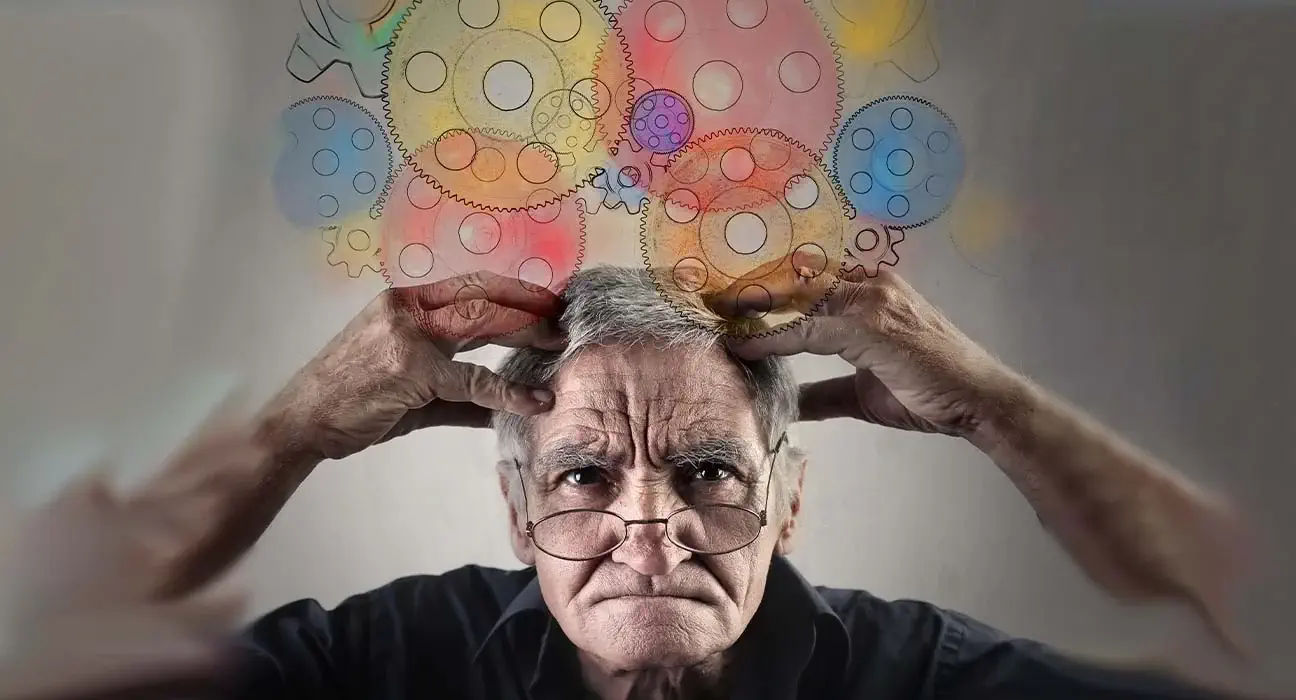
Distraction in the Elderly: Causes + Treatment
How aging affects focus? Distraction can be considered one of the most common mental disorders among the elderly. Today, many studies have been conducted on distraction in the elderly, and fortunately, there are appropriate methods for dementia care for elderly quality of life. Elderly people who have experienced difficult mental and emotional conditions in the past are more susceptible to such diseases than other people. If you see the slightest symptoms related to distraction disorder, you should immediately start using treatment methods.
In this text, we intend to introduce you to the causes of distraction in seniors and all topics related to distraction in elderly. If you have an elderly person who suffers from this disease or are generally curious about this field, keep reading this article from humanhealthmag.
What Are the Main Causes of Distraction in the Elderly?
Distraction is considered as one of the diseases whose causes have not yet been provided with adequate information. The reason for this can be attributed to the variability of patients’ conditions.
However, some causes can be observed in different cases of patients. Of course, this does not mean that every person suffering from such conditions has faced these cases before. Some of the most important causes of distraction in the elderly that have been confirmed so far include:
- Sleep problems in the elderly (both in terms of excessive sleepiness and lack of sleep)
- Use of modified foods
- Lack of discipline in the living environment
- Being affected by bad news and unfortunate events
- Lack of nutritional minerals orally
- Lack of important vitamins (such as vitamins B, C, E, etc.)
- Lack of salts in daily nutrition
- Lack of planning for personal affairs
- Excessive use of glucose
- Continuous stress and sudden and unwarranted anxiety
- Inappropriate hormone production such as thyroid disorders in the elderly (excessive or less than necessary secretion)
- Side effects of medications (usually medications prescribed for depression)
- History of attention deficit disorder in acquaintances and family
- History of hyperactivity syndrome
Causes of Sudden Amnesia in the Elderly
Amnesia can be a symptom of Alzheimer’s disease or other types of dementia in the elderly; however, if sudden amnesia occurs in the elderly, it has other medical causes and usually disappears with successful treatment of this type of amnesia. Conditions that lead to such a condition include the following:
- Head injury and concussion due to falls, car accidents, and severe blows to the head even if they do not lead to unconsciousness.
- Cancer and related treatments, such as complications of chemotherapy in the elderly and radiation therapy
- Brain tumors, brain damage due to surgery to treat a brain tumor
- Blood clots
- Infection in the brain
- Hypothyroidism
- Anemia
- Vitamin B12 and folic acid deficiency
- Vascular dementia
- Stroke in the elderly and other people can cause short-term or long-term memory loss.
- Drug interactions: Taking medication for depression, sleep disorders, seizures, high cholesterol, anti-anxiety medications, painkillers, and high blood pressure control medications in the elderly
- Sudden loss of a spouse, child, or loved one
- Alcohol or drug abuse

Symptoms of Distraction in the Elderly
What are the symptoms of cognitive decline in the elderly? Distraction in the elderly is a very broad topic, and therefore it is not possible to describe universal symptoms for this disease. Many of the symptoms related to this disease may not be seen in the patient in question, but his/her condition may be serious.
Some symptoms of distraction will be transient. This feature causes, for example, the elderly to have a loss of appetite for a week, but to return to their previous appetite the next week. In general, a doctor should be seen when the symptoms of this disease continue for a long time. Some of the most important symptoms of distraction (especially in the elderly) include:
- The elderly person’s bad temper with nurses, family members, and even friends and acquaintances
- A specific depression that is not treated or reduced even with various medications
- The elderly person’s unlimited loss of appetite for a long time and without return, so that symptoms of malnutrition become evident in the elderly person
- The unlimited overeating in a way that endangers his/her health
- A feeling of constant fatigue
- The feeling of not having the energy necessary to carry out daily tasks
- Lack of self-confidence or self-esteem
- The elderly person cannot make appropriate decisions even for simple tasks
- The elderly person’s hopelessness about the future
As you know, each of these symptoms has many subcategories. For this reason, the elderly person’s condition should be monitored daily so that if any of these symptoms are observed, treatment can be initiated as soon as possible.
Which Doctor Should I See for Distraction in the Elderly?
The best way to diagnose and treat distraction in the elderly is to see a neurologist. Distraction can be considered one of the most important diseases related to the brain and nerves, which, if the necessary precautions are not followed and proper treatment is not provided, will quickly weaken the health of the elderly. Neurologists can easily diagnose distraction by examining the existing symptoms and using various tests.
After diagnosis, the relevant doctor will provide you with the necessary instructions in creating a regular treatment plan. The elderly’s companions and their caregivers and nurses should be fully familiar with this regular treatment plan, because as mentioned, in severe cases of distraction, the elderly will not even have the strength to perform their daily and simple tasks. Distraction in some patients can be diagnosed in a short time, but diagnosing this disease in people with more normal conditions may require more examinations.
Treatment
Treatment of severe mental disorders, such as distraction in the elderly, should be carried out under the full supervision of a physician. The reason for this can be attributed to the sensitivity of the treatment of this disease. The treatment of distraction includes two different treatment areas. In addition to the medications available to treat this disease, natural treatment methods can also be used, of course, as mentioned, the use of any method should be done after coordination with the relevant physician.

Among the most important natural treatments for improving distraction in the elderly is the use of a healthy diet or easy recipes for seniors with dementia. In the previous sections, we mentioned that lack of proper nutrition and adequate intake of minerals can be an important cause of distraction. Dear elderly people should enjoy a healthy diet that contains carbohydrates, proteins, and vitamins in appropriate amounts.
A deficiency in any of these will cause the elderly’s immune system to lose its ability to cope with distraction. Dear seniors, you should get enough sleep. Sufficient sleep, along with proper nutrition, are the main weapons available to prevent distraction. The living environment of the elderly should be calm, peaceful, and beautiful (both in terms of nature and visual).
The elderly should not be exposed to stress. The presence of any disturbing news or news that causes anxiety in the elderly completely disrupts the treatment process. The presence of clean air in the elderly’s living space will improve the functioning of the respiratory system and their mental and emotional state.
Activities That Help Elderly People with Distractions to Focus
One of the appropriate methods to improve distraction in the elderly is to use sports activities. These activities should be considered in a way that the senior is interested in them. Activities for older adults with dementia will strengthen the overall mind of the senior. Among the most important physical activities suitable for seniors are the following:
- Yoga suitable for seniors
- Aerobic exercises
- Walking
The stronger the mind of the dear senior, the less likely he is to be distracted. Strengthening memory by using hobbies for elderly with dementia and activities such as chess, solving puzzles, solving tables, etc. are among the best memory exercises for elderly with dementia to strengthen memory in them. Remember that if these activities are carried out in a group in a senior center, their effect will be multiplied several times. For this reason, the main recommendation is that such activities are usually carried out in small groups and on a weekly basis.
Important Points About Distraction in the Elderly
Distraction in the elderly can have various symptoms and may seem scary at first. Today, several treatment methods are used to treat this mental disorder.
If dear elderly people do their work according to the treatment plan set for them, distraction will be cured in a short time. As a rule, the role of nurses and caregivers in this regard should not be underestimated. In general, the most important things to consider in the treatment of distraction in seinors are:
- Timely diagnosis of the disease
- Examination of the patient by a specialist doctor
- Setting up a suitable diet and treatment plan for the elderly with distraction
- Using mental exercises and activities such as yoga, aerobics, etc.
Remember that the elderly suffering from distraction does not indicate the end of the world! Distraction in the elderly can be treated with a variety of treatment methods. The best way to follow up on the treatment provided by specialist doctors is to use the services of a senior care center.
A senior care center, with the help of experienced experts and specialists in the field of caring for your dear seniors, will accompany you in all matters related to the treatment and care of patients with dementia.
Concluding Remarks
Distraction can occur at all ages, but it is more common in the elderly. This distraction can lead to many problems and disorders in their daily lives. By carrying out activities and effective factors that can prevent distraction in the elderly, the quality of life of the elderly can be improved. If your elderly person is suffering from distraction, you can refer to a neurologist or nursing home centers to help treat distraction in your elderly person.
We’ve shared our thoughts and now it’s YOUR turn! Please share your insights in the comments, and let’s start a meaningful discussion that will help others, too! If you have any questions or challenges about this topic, you can contact our experts through the comments.

Frequently Asked Questions
Is distraction in the elderly a symptom of Alzheimer’s?
Alzheimer’s in the elderly or amnesia, like distraction, is a common mental disorder in old age. In general, it cannot be immediately stated that the elderly has Alzheimer’s after the presence of distraction. The relationship between Alzheimer’s and distraction should be carefully examined by the elderly’s doctor so that appropriate treatments can be provided if there are any symptoms.
If we strengthen a person’s memory, will the likelihood of distraction in the elderly decrease?
Yes, there is an inverse relationship between strengthening memory and distraction.
Can we prevent the symptoms of distraction in the elderly by doing physical activities and exercise?
Yes, doing physical activities and exercise can reduce the symptoms of distraction in the elderly or reduce its likelihood.
